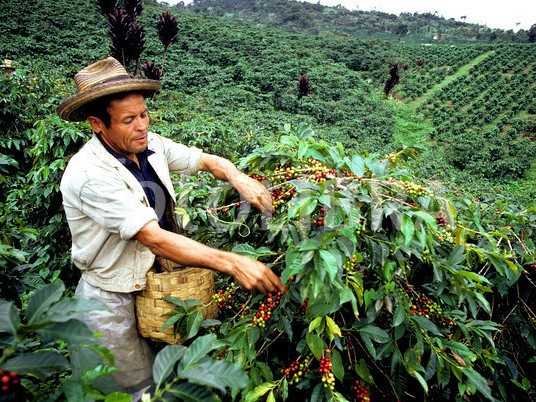CHINCHINÁ, Caldas – The collective construction of the code of conduct that will articulate the Café de Colombia sustainability standard is on its way. Representatives of the National Coffee Research Center (Cenicafé), Almacafé, Buencafé, Procafecol, the Manuel Mejía Foundation, the Extension Service, several departmental Coffee Grower Committees, and the central office of the Colombian Coffee Growers Federation (FNC) met in Chinchiná, Caldas to hone the features that will define Café de Colombia’s code.
The code of conduct is a set of good economic, social, environmental and institutional practices that will help Colombian coffee growers achieve sustainability by 2027. Through its highly inclusive nature, the standard seeks to help coffee producers comply with the code of conduct’s indicators.
After reviewing some basic concepts regarding sustainability, standards, access to markets, brand identity and the main objectives of the Café de Colombia standard, participants in the co-creation workshop complemented and enriched the code of conduct with their experiences and diverse areas of expertise.
This collective construction phase at the internal level of the coffee institution will give way to the proposal that will then be subjected to public consultation. The core of this final phase will be the participation of all sectors of the coffee chain, including, noticeably, coffee producers.
As noted by Felipe Robayo, Commercial Manager of the Colombian Coffee Growers Federation (FNC), “this exchange of contributions and experiences has proven to be profoundly fruitful for making the Café de Colombia sustainability standard a reality. Note, however, that this dream did not start from scratch. We’ve come a long way in terms of sustainability.” 30% of Colombia’s coffee growers, who account for 42% of the total area grown in coffee, already operate under sustainability standards.
“In order to guarantee credibility, acceptance and voluntary commitment, we are structuring the Café de Colombia sustainability standard on solid foundations,” added Mr. Robayo.
In the most recent meetings of the National Congress of Coffee Growers, the highest decision-making body of the coffee sector, the need to move towards sustainable coffee production by 2027 has been a priority.


















